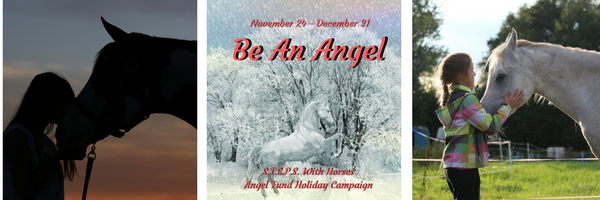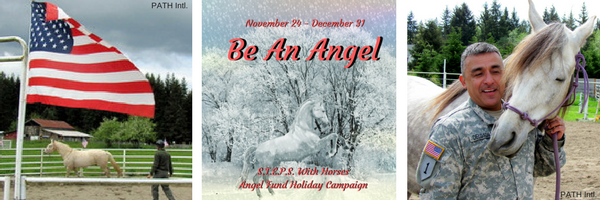Katie approached the horses much like her entry into the barn – an uncontrolled ball of energy. Startled by Katie’s approach, the horses immediately ran to the other side of the play area. Katie ran after them. Despite the counselor’s efforts to help Katie understand that the horses were frightened by her running, she was frustrated and angry when the horses didn’t want to play with her. In a huff, Katie settled down to play in the sandbox instead. As she grumbled about the horses being “mean” and ran her hands through the sand, Katie began to relax. A few minutes later, the horses made their way back to Katie and allowed her to pet them.
Prior to living with her aunt and uncle, Katie had a difficult life. Although her mother had tried to provide the very best for her daughter, she had her own struggles. From the time Katie was a baby, her mother would park her in front of the TV to keep her quiet. As Katie got older and became bored with the TV, her mother would yell and scream and even hit Katie. To provide Katie with a safe and secure home, the state awarded her aunt and uncle custody when Katie turned six.
As a result of Katie’s early life trauma and neglect, she had difficulty regulating her emotions and would often become aggressive when upset. She struggled to make friends and didn’t understand why the other kids didn’t like to play with her. As Katie’s time in play therapy progressed, she gradually began to see how her behaviors influenced the horses’ responses to her. Soon Katie began to use the horses’ behaviors as “clues” for understanding her own feelings and behaviors. As her empathy towards others developed, Katie made her very first best friend at school.
Katie’s story is not unique. As many as 20% of youth suffer from a mental health disorder. Most of these children go untreated, avoid treatment, and drop out of treatment prematurely. With an improvement rate of 90%, our evidence-informed services can be life-changing not only for the child but for the entire family. It is crucial that at-risk youth receive needed mental health care in order to grow, thrive, and become happy, healthy, and well-adjusted.



 RSS Feed
RSS Feed
